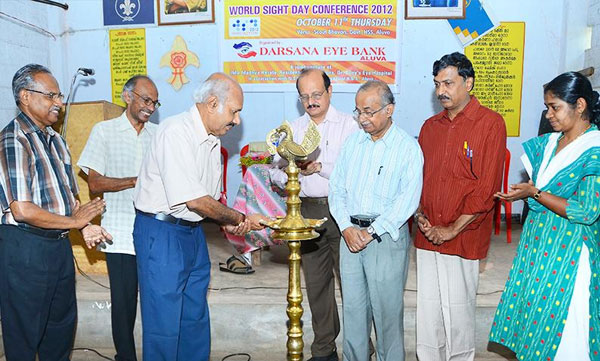
Diabetes can have far-reaching effects on the body, & the eyes are often among the most vulnerable. One of the most serious complications is diabetic retinopathy, a condition in which high blood sugar levels slowly damage the tiny blood vessels in the retina — the light-sensitive layer at the back of the eye that allows us to see clearly. Over time, these blood vessels may become weak, swell, leak fluid, or even close entirely, reducing oxygen supply to the retina & gradually affecting vision. In advanced stages, new, abnormal blood vessels may form, which are fragile & prone to bleeding, further increasing the risk of vision loss. Many people may not notice any changes in their eyesight during the early stages, making regular eye examinations & early detection essential. Without timely treatment, diabetic retinopathy can progress silently, ultimately leading to blurred vision, severe vision impairment, or permanent blindness. Fortunately, with proper monitoring, lifestyle management, & modern eye care treatments, it is possible to protect your vision & manage the risks effectively.
What Is Diabetic Retinopathy?
Diabetic retinopathy is a complication of diabetes that occurs when long-term high blood sugar levels damage the delicate blood vessels in the retina, the light-sensitive tissue at the back of the eye responsible for capturing images. Initially, the damage may cause the vessels to swell or leak small amounts of fluid, which usually does not produce noticeable symptoms. As the condition advances, some blood vessels may close, reducing blood flow to the retina & depriving it of essential oxygen & nutrients. In response, the eye may form new, abnormal blood vessels, which are fragile & prone to bleeding. This can lead to vision disturbances, floaters, or even severe vision loss if left untreated. Because diabetic retinopathy often develops silently in its early stages, regular eye screenings are essential for all people with diabetes. Early detection allows for timely treatment, which can slow disease progression & protect long-term vision.
Who Is at Risk?
Anyone with diabetes — Type 1, Type 2, or gestational — can develop diabetic retinopathy. The risk increases if you:
- Have had diabetes for many years
- Have fluctuating or poorly controlled blood sugar levels
- Have high blood pressure or cholesterol
- Smoke or consume excessive alcohol
- Skip regular eye check-ups
Even well-controlled diabetes can cause early retinal changes, so routine screening is recommended.
Early Signs & Symptoms
While diabetic retinopathy may not show symptoms initially, advanced stages can cause: • Blurry or fluctuating vision
- Trouble seeing at night
- Sudden vision loss
- Floaters or streaks in vision
- Dark spots or empty areas in your vision
Immediate evaluation by a retina specialist is recommended if any of these signs appear.
Treatments for Advanced Diabetic Retinopathy
At Dr Tony Fernandez Eye Hospital, advanced diabetic retinopathy is treated with state-of-the art therapies aimed at preserving vision:
- Laser Photocoagulation: Seals leaking blood vessels & prevents the growth of abnormal vessels.
- Intravitreal Injections: Anti-VEGF or steroid medications are injected into the eye to reduce swelling & inhibit abnormal vessel growth.
- Vitrectomy Surgery: Removes blood or scar tissue from the vitreous & corrects retinal traction, helping restore clarity in advanced cases.
These treatments are supported by advanced diagnostic tools & expert retina specialists, ensuring personalized care & effective management of diabetic eye disease.
Tips to Protect Your Eyes
- Keep blood sugar, blood pressure, & cholesterol under control
- Follow a healthy, balanced diet & exercise regularly
- Avoid smoking & alcohol
- Schedule annual retina screenings or more frequent exams if recommended • Follow the treatment plan prescribed by your retina specialist
Comprehensive Care for Diabetic Eye Health
Diabetic retinopathy is a serious but manageable complication of diabetes. At Dr Tony Fernandez Eye Hospital, patients benefit from advanced treatments including laser photocoagulation, intravitreal injections, & vitrectomy surgery, all delivered by expert retina specialists with access to cutting-edge diagnostic technology. Timely intervention & personalized care help preserve vision, slow disease progression, & maintain long-term eye health for diabetic patients.











 I am Nimitha, before Lasik, I am very difficult to see and difficult to handle contact lens and specs. After the lasik treatment I am very relaxed.
I am Nimitha, before Lasik, I am very difficult to see and difficult to handle contact lens and specs. After the lasik treatment I am very relaxed. 